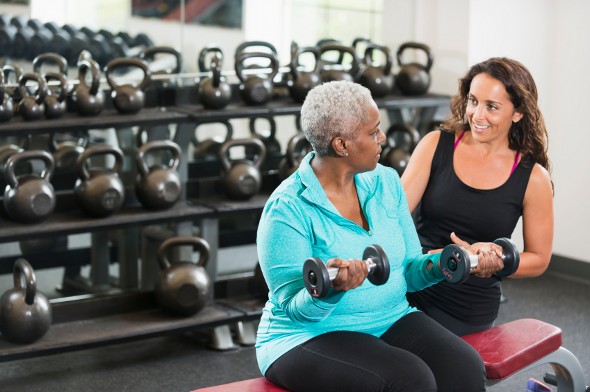
A intermediate workout program is one that includes varying levels. This is an excellent choice for people who are not giving their workouts enough attention or haven’t been training hard enough. You will find different exercises to target different areas of your body in a good plan. Obese or not, you should be working harder and changing your lifestyle.
Workout routine for beginners
Beginner workout routines are a great way to begin a physical fitness program. These workouts are simple to perform at home or at the gym. The key points are intensity and variety. A high-intensity, bodyweight training can produce comparable results to weights but requires less equipment and takes less rest. It doesn't really matter which type of exercise, you should start with a warm up. This will increase your body's temperature and increase the blood flow to the working muscles.
Beginner workout routines should focus on full-body workouts. These include all muscle groups at one time and are typically done three times per week. This will help the body to work together in a single session, and give the muscles the stimulus they need to grow. This is a great way for you to avoid overtraining and keep your whole body in shape. Beginers should include proper pauses between sets. Overworking your muscles can lead to burnout and discouragement.
Moderate intensity
Heart disease patients may find a moderate intensity exercise program to be extremely beneficial. This exercise can be done by all major muscle groups. These include the hips, legs, arms, chest and shoulders as well as the back. It has many health benefits. Moderate intensity training can improve overall fitness and reduce the risk of developing heart disease. It also increases stamina, which can be a benefit to patients with heart disease.

Moderate exercise can not only prevent heart disease but also boost your mood, and overall well-being. According to the American Heart Association (AHA), an average person should do at least 30 minute of moderate exercise per week. Moderate exercise is any activity that keeps your heart beating. Examples of moderate exercise include walking slowly, raking the lawn, mopping the floors and playing tennis with your partner.
Exercise for your whole body
An assortment of exercises targeted different muscle groups makes for the best total body workout. Start light by starting with a lower weight, and then increase the intensity slowly by increasing the number per muscle. Mobility exercises, which target the shoulders, hips, knees, wrists, and back, can be added into your routine. Proper form is key to avoiding injury when you exercise. You should start with smaller weights if you are just starting weightlifting. Don't compare yourself to weightlifters with greater experience. A complete workout should last around an hour.
Frequency is another crucial component of a full-body exercise program. In order to be effective, each muscle should be exercised at least once a week. This will allow you to develop a balanced physique. Numerous scientific studies support this approach. According to a Journal of Strength and Conditioning Research study, full body exercises are more effective than those that only target one muscle group.
Interval training
Interval training is a great workout for people with intermediate fitness levels. It is important to begin slowly and gradually increase your time between intervals. Keep your heart rate steady and keep it up. In intervals, aim to lower your heart rate to between 100 and 110 bpm. Gradually increase the intensity. Consult a certified personal trainer if you are not sure of your fitness level. Consider starting with lower impact exercises, such as swimming or elliptical, if your back is hurting or you have muscular problems.
Interval training is a great way to improve cardiovascular fitness. This type of workout involves heart and lung working in tandem to deliver oxygen to the muscles. Once the cardiovascular system is in good health, the aerobic system can take over and use oxygen to convert stored carbohydrates into fuel. This results in a stronger heart muscle, and better athletic performance. It doesn't cause burnout, which is a common side effect of repetitive long-term exercise.

Workout routines that are more advanced
An advanced workout regimen involves working out over a longer duration and with greater intensity and volume. Although muscle gains are not as rapid as for beginners, it's still possible make good progress. For maximum muscle growth, advanced workouts should include six days training and one day rest. It should target all muscles twice a week, and include supersets.
Advanced routines require a thirst for knowledge and a willingness to take on new challenges. You should be ready to push your body to its limits. This involves using moderate volumes, high intensities, multiple angles, and multiple angles to recruit large quantities of muscle tissue. It also requires a mindset of accepting pain as a stimulus for growth.
FAQ
Why is physical fitness important for your health?
It is essential to maintain our physical health. For our health to be healthy, we need to exercise often. Exercise improves sleep quality, helps with stress management, increases energy and boosts self-esteem.
Can I eat when I'm working out?
Yes. Yes. You can eat whatever you want while you exercise. Make sure you choose low-calorie snacks such as watermelon, carrots, celery, apples, bananas, and grapes. These foods are high in nutrients, which can improve your performance during training.
Are there exercises I shouldn’t perform?
Before you begin any new exercise regimen, make sure to check with your doctor. You might have injuries or conditions that make it impossible to do certain types of exercise. Some activities may require special equipment, or training. Swimming requires you to have a swimsuit and access to the pool.
Is exercise good for me?
Yes. Regular exercise can help you shed extra calories and lose weight. Exercising can increase your metabolism so that you can burn calories even when you're not working out.
Do I gain weight from exercising?
Not at all. Exercise can actually help you maintain your weight. When you work out regularly, you'll build muscles and increase your metabolism, helping you burn more calories throughout the day. This means your body will not store as much fat.
Statistics
- An estimated 110,000 deaths per year could be prevented (cdc.gov)
- Globally, 28% of adults aged 18 and over were not active enough in 2016 (men 23% and women 32%). (who.int)
- According to the Centers for Disease Control and Prevention, chronic diseases cause 7 out of 10 deaths in the U.S., and treating chronic diseases accounts for 86% of U.S. healthcare costs. (mana.md)
- Adolescent girls were less active than adolescent boys, with 85% vs. 78% not meeting WHO recommendations of at least 60 minutes of moderate to vigorous intensity physical activity per day. (who.int)
External Links
How To
How to stay fit at 40
This article provides guidance for people who want to keep their bodies strong and healthy, even after turning 40. It provides some basic advice about how to eat right and exercise well as how to take care of your mental wellbeing. This article offers tips for living longer and more healthy lives.
-
Eat right - It is important to eat the right food when you are trying to lose weight. You should avoid processed food products. Instead, eat whole foods, fruits, vegetables. Do not eat what you don’t like. You can add another food to your daily diet. Do not starve yourself, this will not help with weight loss. Instead, add small amounts more variety to your daily menu. You might try turkey if you don't eat chicken breast often. Try rice occasionally if pasta is your favorite food. These foods should be a part of your daily life.
-
Exercise - Workout at least 3 times per week. You should include cardio activities such running, swimming or biking. You should also ensure you get enough sleep. It is recommended to get 8 hours of sleep each night. Drink plenty of water throughout the day. Every day, aim to drink at least 2 liters (0.5 gal) of water.
-
Sleep Well - Getting adequate sleep is essential to staying fit. The National Sleep Foundation states that adults need 7-8 hours sleep per night to be in good physical and mental health. However, most people average less than 6 hours of sleep per night. Changes in your sleeping habits can make you more tired. By changing your sleeping time, you will be able to catch up more sleep. To help you relax and wind down, turn off your phone before you go to bed. Avoid caffeine after noon to avoid insomnia.
-
Take Care of Your Mental Health - Taking good care of your mind is crucial for keeping your body healthy. Stress can cause poor eating habits and unhealthy lifestyle choices. It is important to practice stress management techniques like meditation, yoga, breathing exercises, relaxation, and breathing exercises. Try to spend one hour of your free time doing something enjoyable. You could go for a walk, play sports, read a book, listen to music, or watch TV.
The above four points will ensure that you live longer and healthier. These four simple steps will help achieve your fitness goals.